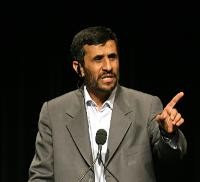After the Obama administration shifted gears in its strategy to stop Iran's nuclear program, moving from diplomacy to sanctions, a sense of skepticism about its chances for success emanated from all corners. From top American generals saying they did not think the sanctions would work, to a wide variety of politicians, analysts and journalists -- including your humble correspondent -- a growing consensus emerged that the weak United Nations sanctions obtained by Washington with enormous difficulties would simply fail to deter Iran's defiant push in pursuit of nuclear know-how and, most likely, nuclear weapons.
Since the latest resolution's passage, however, much has transpired in many places. The most interesting developments have unfolded inside Iran. Consider, for example, last week's report -- denied by Tehran -- of an assassination attempt against President Mahmoud Ahmadinejad. Reports from the city of Hamadan claimed someone had lobbed a grenade at the president. The alarming sounds, authorities insisted, had come from a firecracker. But doubts remained in and out of Iran. Whatever the facts of the incident, a question remained hanging in the air: Would Ahmadinejad's demise mark the end of Iran's nuclear defiance?
Is it possible that international sanctions on Iran are creating enough unease at home, enough pressure on the regime, that they could actually achieve their desired results?

